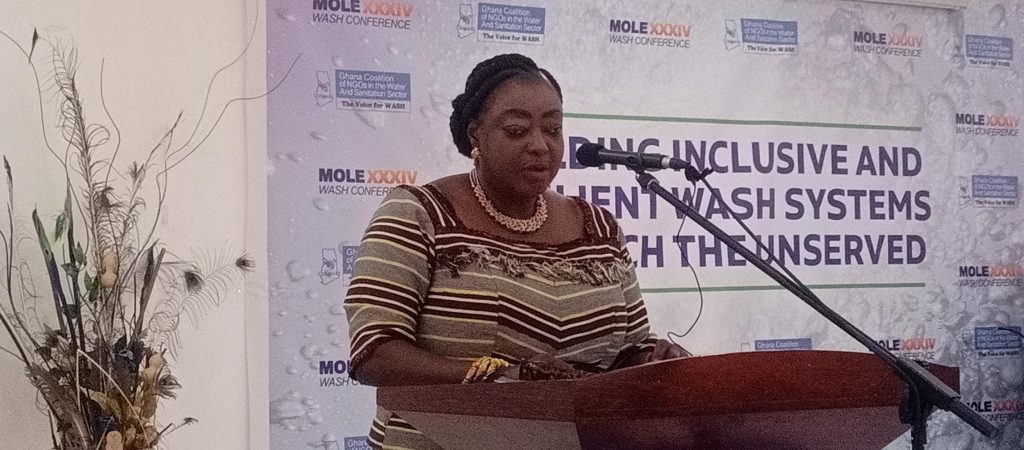By Dennis Peprah
Jirapa (UW/R), Oct. 31, GNA – Despite interventions by government to deliver safe water to the populace, about 3.8 million Ghanaians still lack access to the basic commodity.
Dr Freda Prempeh, the Minister of Sanitation and Water Resources said nonetheless the country was on track to achieving the Sustainable Development Goals Six as about 87.7 per cent of Ghanaians had access to potable water.
“The nation ought to take water quality issues seriously to be able to derive maximum benefits from the use of water,” she said.
Dr Prempeh said this at the opening of the 34th Mole Water, Sanitation and Hygiene (WASH) conference, underway at Jirapa in the Upper West Region.
The Coalition of NGOs in Water and Sanitation ( CONIWAS) and partners organised the four-day conference on the theme: “Building Inclusive and Resilient WASH systems to Reach the Unserved”.
About 170 stakeholders, comprising policy makers, Members of Parliament (MPs) as well as Municipal and District Assemblies (MDAs) are participating.
Dr Prempeh said illegal mining remained the “greatest enemy” to safe water delivery in Ghana, quoting the 2018 Multiple Indicator Cluster Survey, which gave five in 10 points sources and eight out of 10 household water as being contaminated with E-coli, a bacteria that causes diarrhoea.
As WASH stakeholders, she urged the participants to make their voices heard in ensuring contaminant- free water for all and on the on-going discussions aimed at stopping galamsey.
“It is costing our urban water utility company so much to treat water for human consumption”, she stated.
Dr Prempeh said it was time for everybody to be innovative and support the Government to provide resilient and sustainable WASH infrastructure.
The provision of such infrastructure, she said, remained essential not only for public health but also for sustainable development, environmental protection, and community resilience.
She assured of the Ministry’s open- door policy, which was ready to discuss strategic issues with CONIWAS to impact and accelerate WASH service delivery.

The Ministry was also committed to strengthening the enabling environment to attract private sector additional funding to reach the unserved and underserved with sustainable WASH services, she said.
Dr Hafiz Bin Salih, the Upper West Regional Minister, said despite the 76 percent water coverage in the region, access to sustainable drinking water was still a huge challenge there.
He commended CONIWAS and its partners, as well as the Water and Sanitation Agency for their continuous support to meet the water demands of the region.
Ms Beata Awinpoka Akanyani, the Chairman of CONIWAS, noted that the conference had witnessed consistent growth of interest and in importance since its inception in 1989 among civil society, policy makers, local government and development partners.
The Mole Conference was named after the Mole Game Reserve, near Damongo in the Savannah Region, which would discuss the implementation of resilient WASH systems to address access and equity in water delivery among others, she said.
She expressed appreciation to DANIDA and the World Bank, USAID and other development partners for their continuous support to meeting the Coalition’s targets.
The GAMA Sanitation and Water Project and the World Vision International also sponsored some members of the Media Coalition against Open Defecation (M-CODe) to attend the conference.
GNA